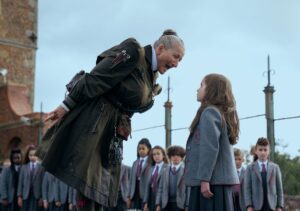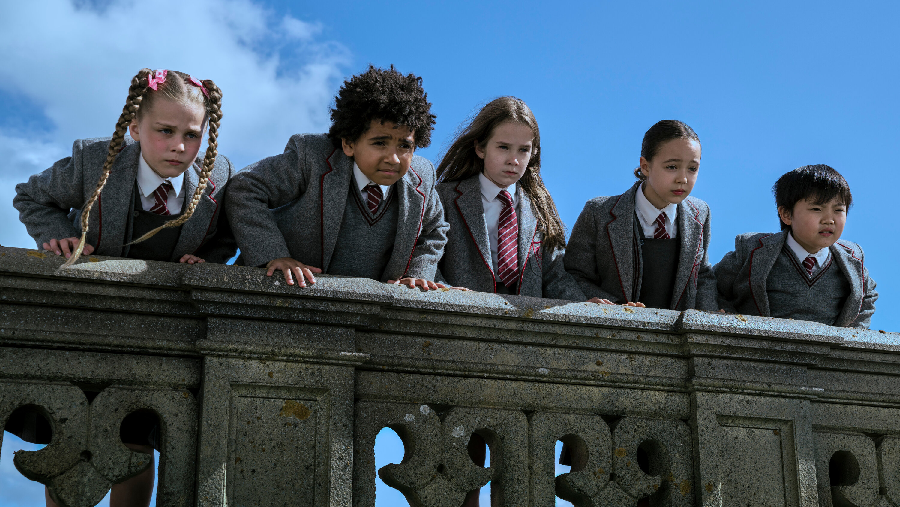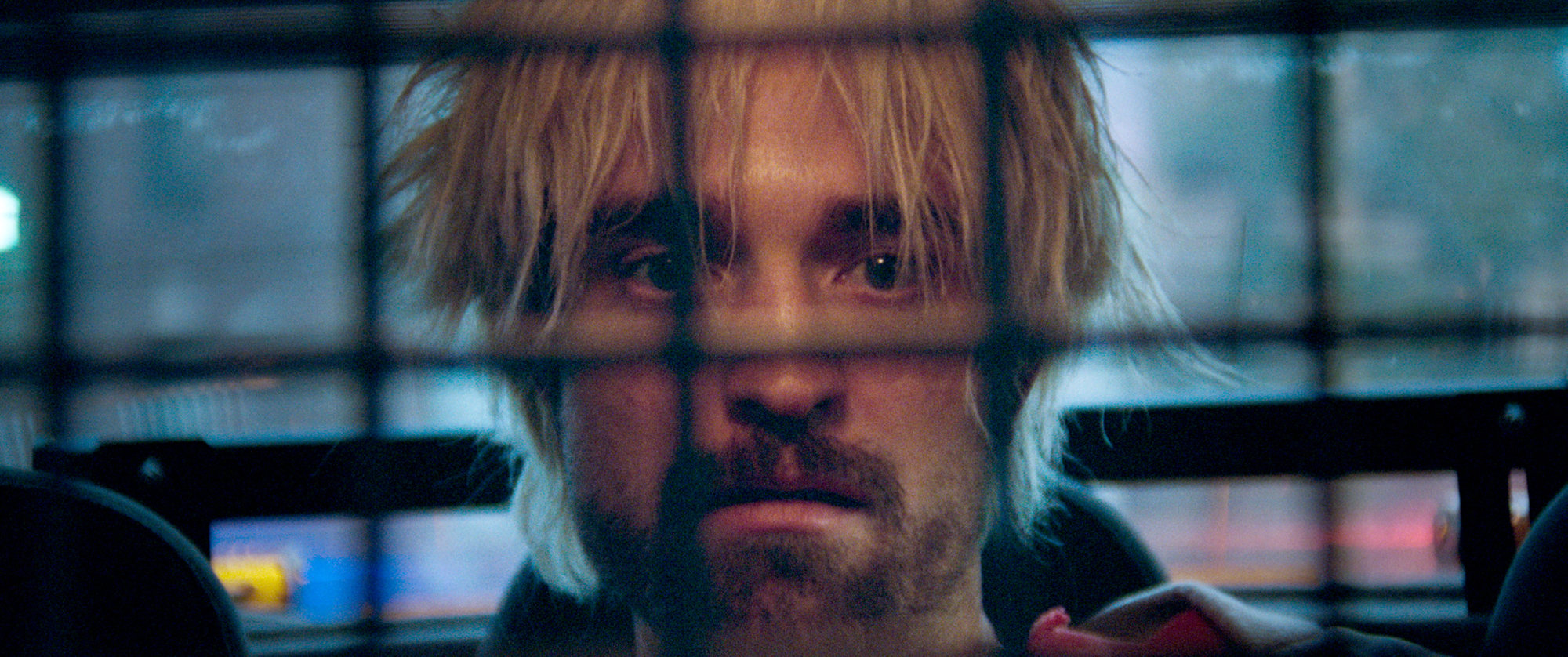Why do the English hate children so much? From Charles Dickens to Roald Dahl to Harry Potter, there is an unquestionable theme in the history of modern England that genuine child abuse is something to be described in punctilious detail and set in fiction long before anybody does anything about it. Today’s victim is Matilda, a highly intelligent child her parents have no patience for. And instead of developing Matilda’s many intellectual gifts, she is sent to school prison as only the English can do.
Matilda Wormwood (Alisha Weir, who is 13 going on 30) was never taught to read by her parents. Despite that, she travels to the roaming library every.single.day and devours book after book after book. Mr. and Mrs. Wormwood (Stephen Graham and Andrea Risborough, who have nothing on Danny DeVito and Rhea Perlman) are the kind of couple that make carnies look reasonable by comparison. Realizing they have to do something about the child, Mr. Wormwood meets with Agatha Trunchbull (Emma Thompson), a former hammer-throw Olympian, beast, and headmistress at Crunchem Hall, where no child dares speak, move or breathe when “the Trunchbull” is in the vicinity.
The Trunchbull treats Crunchem Hall as some sort of Siberian Gulag, where inmates [read: students] are encouraged in no manner whatsoever. Discipline is all there is and no more. Bad students are thrown in “the Chokey,” sort of a modern iron maiden device to punish unruly children. The joy of Matilda is her consummate defiance. Despite her physical handicaps in size, age, strength, etc., she fears neither her parents nor Miss Trunchbull – or at least not enough to toe the line 24/7. Matilda compensates for her literal shortcomings with mischievous planning; it’s all good fun for kids who like to get away with stuff. This is a wonderful story for imps and a lousy one for authoritarians. But when it comes right down to it, doesn’t that describe all English fiction?
The biggest problem with this musical is the problem with every musical – the music has to prevail. If it doesn’t, you sit there with a pleasant smile and wonder how the song could be better. While there are several  song and dance numbers in Matilda the Musical, only two come to mind: “When I Grow Up,” a song where every student at Crunchem Hall sings about how they can’t wait to do something else with their lives, and Miss Trunchbull’s lament “Horrible Children.” And both numbers were memorable for their visuals, not their composition.
song and dance numbers in Matilda the Musical, only two come to mind: “When I Grow Up,” a song where every student at Crunchem Hall sings about how they can’t wait to do something else with their lives, and Miss Trunchbull’s lament “Horrible Children.” And both numbers were memorable for their visuals, not their composition.
You may enjoy Matilda the Musical just fine, but I seriously doubt you’ll be singing “I like to live in America!” –or the Matilda equivalent- when you’re done with this thing.
The original Matilda represented one the rare times Hollywood bested the source material. It happens, but it’s rare. And some of us still know the name Mara Wilson even though she gave up acting for over a decade. I cannot see any reason why a fan of Matilda wouldn’t also enjoy Roald Dahl’s Matlida the Musical, but the original was better. No question. In my estimation, this version is a mild improvement in only one way – the enhancement of the fictional story Matilda tells which only served to confuse me cuz is it fictional or not … and how would Matilda have known if it weren’t fictional? You can’t just make up somebody’s life, can you? I’m still confused. While I did enjoy Roald Dahl’s Matilda the Musical, the film just isn’t as good as the original. In every way besides the tale of the escapologist, I think the comparison was either a wash or the original was better and did a much better job at the empowerment of Matilda herself. Do yourself a favor and watch the original starring Mara Wilson.
In the fabulous world of Roald Dahl
Bullies are always made to feel small
The man is a master
Of re-composing disaster
Just don’t ask about his racism. Like, at all
Rated PG, 117 Minutes
Director: Matthew Warchus
Writer: Dennis Kelly
Genre: Why do the English hate children?
Type of being most likely to enjoy this film: Fans of Matilda
Type of being least likely to enjoy this film: Disciplinarians



